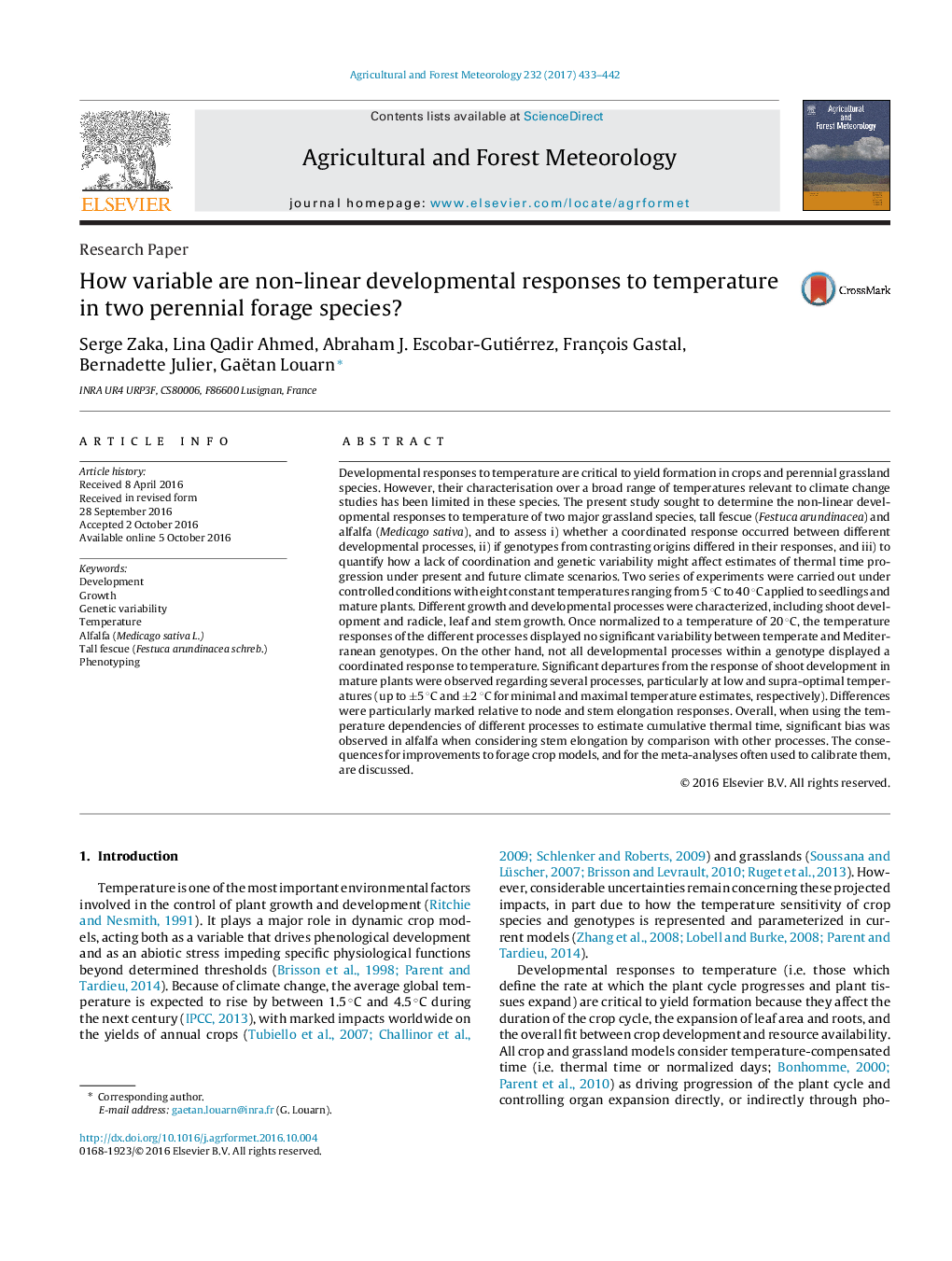| کد مقاله | کد نشریه | سال انتشار | مقاله انگلیسی | نسخه تمام متن |
|---|---|---|---|---|
| 6458122 | 1420865 | 2017 | 10 صفحه PDF | دانلود رایگان |
- Different developmental processes are assumed to share a unique response to temperature in crop models.
- In alfalfa and tall fescue, temperature dependencies differed substantially between processes.
- Within each species, genotypes from contrasting origins presented identical responses.
- The differences between temperature dependencies were magnified close to extreme temperatures.
- This could lead to significant bias of prediction of plant phenology depending on calibration method.
Developmental responses to temperature are critical to yield formation in crops and perennial grassland species. However, their characterisation over a broad range of temperatures relevant to climate change studies has been limited in these species. The present study sought to determine the non-linear developmental responses to temperature of two major grassland species, tall fescue (Festuca arundinacea) and alfalfa (Medicago sativa), and to assess i) whether a coordinated response occurred between different developmental processes, ii) if genotypes from contrasting origins differed in their responses, and iii) to quantify how a lack of coordination and genetic variability might affect estimates of thermal time progression under present and future climate scenarios. Two series of experiments were carried out under controlled conditions with eight constant temperatures ranging from 5 °C to 40 °C applied to seedlings and mature plants. Different growth and developmental processes were characterized, including shoot development and radicle, leaf and stem growth. Once normalized to a temperature of 20 °C, the temperature responses of the different processes displayed no significant variability between temperate and Mediterranean genotypes. On the other hand, not all developmental processes within a genotype displayed a coordinated response to temperature. Significant departures from the response of shoot development in mature plants were observed regarding several processes, particularly at low and supra-optimal temperatures (up to ±5 °C and ±2 °C for minimal and maximal temperature estimates, respectively). Differences were particularly marked relative to node and stem elongation responses. Overall, when using the temperature dependencies of different processes to estimate cumulative thermal time, significant bias was observed in alfalfa when considering stem elongation by comparison with other processes. The consequences for improvements to forage crop models, and for the meta-analyses often used to calibrate them, are discussed.
Journal: Agricultural and Forest Meteorology - Volume 232, 15 January 2017, Pages 433-442
